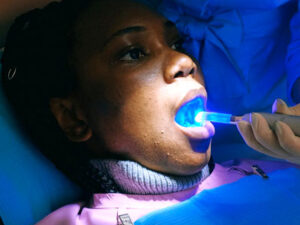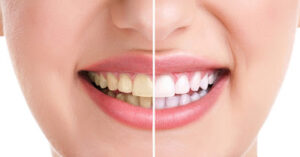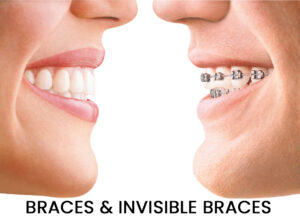Gum Diseases Treatment
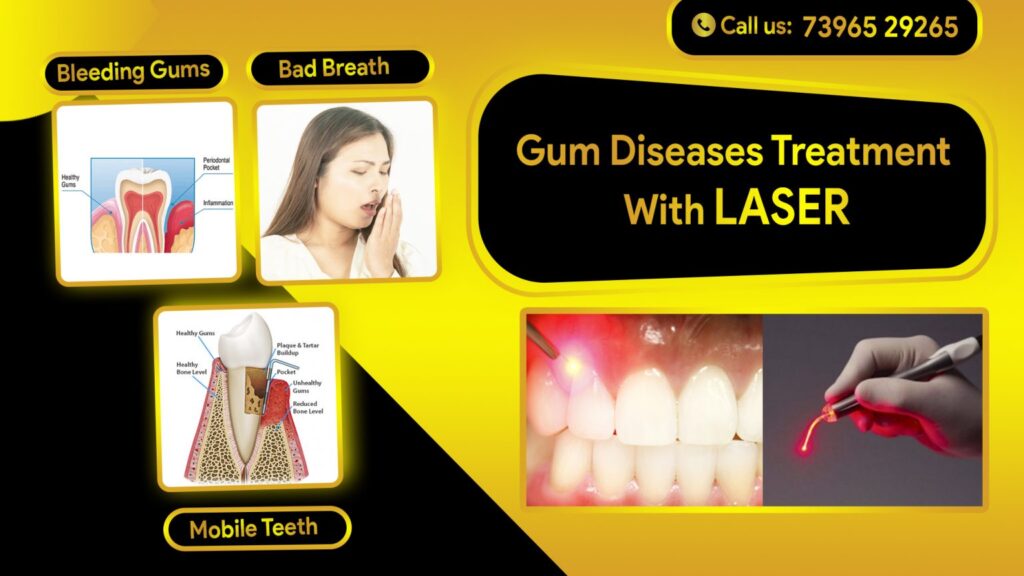
What is periodontal disease/gum disease?
The word periodontal literally means around the tooth. Periodontal diseases also known as gum diseases are some of the most common infections in the world next to respiratory infections! One major problem is that periodontal disease is usually painless, with few obvious symptoms in its early stages. If left untreated, periodontal disease can eventually result in tooth loss. In fact, periodontal diseases are now the leading cause of tooth loss in adults. Despite the number of people infected with this disease, most believe they don’t have them.
Despite all these facts, periodontal diseases are also some of the most preventable diseases, you need to understand what causes them, practice good oral health habits and seek regular professional cases.
Who is a periodontist?
A periodontist is a dentist who specializes in the prevention, diagnosis and treatment of periodontal disease, and in the placement of dental implants
Periodontists are familiar with the latest techniques for diagnosing and treating periodontal disease. In addition, they can perform cosmetic periodontal procedures to help you achieve the smile you desire.
What are the warning signs of gum disease?
A general dentist or periodontist during regular examinations can easily detect periodontal disease. A periodontist is a dentist who specializes in the diagnosis, prevention and treatment of gum disease.
Early signs and symptoms are bleeding gums and bad breath
A periodontal charting will be performed for all teeth. An instrument called the periodontal probe, with ruled millimeter makings is used to measure the depth of the. Space between the teeth and gums. Ideally, normal measurement ranges between 1 and 3mm. Depths greater than this may signify the presence of periodontal pockets and associated gum disease. X-rays will also be taken to see the extent of bone damage that has occurred.
Is there a cure?
The good news is that periodontal disease is preventable and treatable if diagnosed at the right time . We at smile dental and implant center, provide you with professional care in our office and instructions on proper home care. Our periodontist would welcome the opportunity to carefully evaluate your individual situation and discuss treatment options.
The goal of periodontal treatment is to control any infection that exists and to halt the progression of the disease. Depending on how advanced an individual case is, treatment may involve any of the following:
- Non Surgical treatment
- Surgical treatment
Non Surgical treatment
Dental Cleaning by a dentist (prophylaxis / dental scaling) All the deposits which are harmful to your teeth are removed with the help of curettes and ultrasonic devices.
Deep Cleaning (Scaling and root planing) With the help of curettes and ultrasonic devices, all the deposits which are harmful to your teeth are removed and your roots are cleaned to speed up the healing process. With the help of curettes and ultrasonic devices, all the deposits which are harmful to your teeth are removed and your roots are cleaned to speed up the healing process.
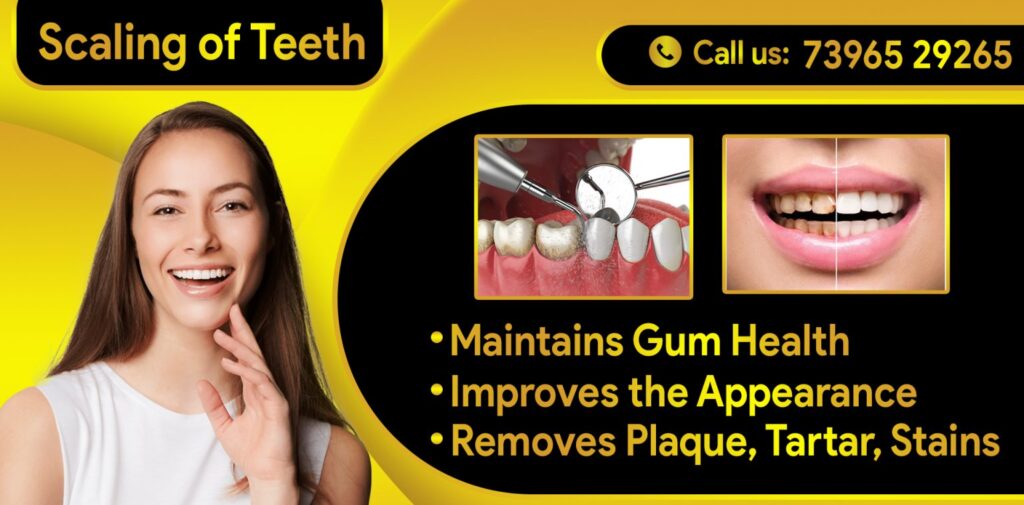
Surgical Treatment
Periodontal surgery is necessary when the tissue around your teeth is unhealthy and cannot be repaired with non-surgical treatment. Various surgical treatments done at smile dental and implant centre are:
- Curettage
- Laser Flap surgery
- Gingivectomy
- Frenectomy
- Flap surgery with BONE GRAFTS
- Guided tissue regeneration(GTR)
- Gum Contouring
Frequently Asked Questions
What is the sign of a gum infection?
You have swollen, tender, or red gums, bleeding during brushing or flossing, and persistent bad breath. Early detection is crucial. See your dentist for diagnosis and treatment. Prevent infections with regular dental visits. Take charge of your oral health.
Can gum disease repair itself?
Gum disease isn’t curable but is manageable with the right treatment. Periodontal therapy can reduce infection and help repair gums and bones. Genetics affect gum health, but with professional care and good oral hygiene, you can control the disease and keep a healthy smile. Consult your periodontist for a tailored treatment plan.
Is gum disease curable?
Gum disease isn’t fully curable, but treatment can reduce infection and may rebuild some bone and tissue. A personalized plan can prevent further damage, though some support may not return. Genetics affect disease progression, but with professional care, you can manage periodontal issues and maintain healthy teeth.
What are stage 5 gum disease symptoms?
Loose teeth, bleeding gus, bad breath, gums recede, sensitivity increases, and risk of abscesses rises.
How serious is stage 5 periodontal disease?
It’s the most severe, with significant gum recession, deep periodontal pockets, and potential tooth loss. Immediate periodontist care is essential.
Is gum disease painful?
Gum disease can lead to pain if not treated. It begins with symptoms like red, swollen, and bleeding gums due to plaque from inadequate brushing and flossing. If ignored, it can affect the bones, causing discomfort while chewing. To prevent this, maintain good oral hygiene by brushing and flossing daily, and have regular dental check-ups. This can help you avoid more severe treatments later and ensure a healthy smile.
What is the best treatment for gum disease?
For gum disease, Dentists may suggest teeth cleaning, Flap surgery antibiotic mouth rinses or gels for gum pockets, and oral antibiotics for severe cases. This treatment restores gum health and protects smiles.



